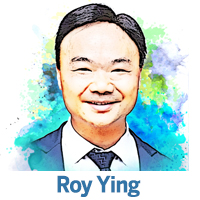The US’ recent aggressive policies on higher education created a hostile environment for international students and scholars there.

Measures such as visa revocations and heightened scrutiny of campus activities have disrupted lives and raised serious questions about constitutional rights, academic freedom, and the country’s global standing as the premier hub for education. Between President Donald Trump’s re-election and the end of last month, nearly 1,800 student visas have been revoked, with many cases involving arrests, detentions, and deportations. Such policies send a clear and troubling message: the US is no longer the safe, welcoming destination it once was for global talent.
The cases of Mahmoud Khalil and Rumeysa Ozturk illustrate the human cost of these policies. Khalil, a Columbia University graduate and green card holder, in his op-ed published in The Guardian on Sunday, called out the US’ hypocrisy. He was arrested at his home in New York for participating in pro-Palestine protests. Despite no formal charges being filed, his green card was revoked, and he now faces deportation. Ozturk, a Turkish student at Tufts University, was detained without prior notice after co-authoring a student editorial critical of her institution’s ties to companies linked to Israel. These incidents reveal a disturbing shift where activism and free speech are increasingly scrutinized under the guise of immigration enforcement, a trend that is antithetical to the principles of academic freedom and open discourse.
READ MORE: HK as an education center — an idea whose time has come
Beyond individual cases, the US government has struck at the heart of institutional autonomy. Federal funding cuts and policy demands have targeted universities perceived as centers of liberal thought, forcing them into a difficult balancing act between compliance and independence.
Critics argue that the policy compromises universities’ independence and sets a precedent for unwarranted federal interference in academic affairs.
While the US wrestles with this crisis of confidence, other countries have stepped up to fill the void. Canada, for example, has seen a surge in applications from US students, with the University of British Columbia and Simon Fraser University reporting 27 percent and 23 percent increases, respectively, in graduate applications from American citizens. France has also positioned itself as an alternative, with initiatives like the University of Aix-Marseille’s “Safe Place for Science” program attracting over 30 applications within 24 hours of its announcement. These developments demonstrate a growing appetite for stable, inclusive, and supportive academic environments.
In this shifting landscape, the Hong Kong Special Administrative Region stands uniquely poised to seize the moment. With five universities ranked among the top 100 globally, the city offers a compelling alternative for international students and scholars seeking academic excellence and career opportunities. The city’s combination of world-class institutions, strategic location, and openness to international students positions it as a prime contender for those looking beyond traditional destinations like the US or Europe.
Hong Kong’s stability is a key differentiator. In recent years, the HKSAR government has taken proactive steps to attract international students, doubling the enrolment ceiling for non-local students in publicly funded universities to 40 percent of local student places. This policy shift sends a strong message of inclusivity and openness, signaling to prospective students that Hong Kong is ready to welcome them. Moreover, unlike the US, which has scaled back its diversity, equity, and inclusion (DEI) initiatives, Hong Kong universities remain committed to fostering inclusive and diverse campus cultures. Programs such as peer support initiatives, multi-faith facilities, and cultural festivals create a welcoming environment for students from all backgrounds. Most of the universities in Hong Kong are signatories of the DEI Charter organized by the Equal Opportunities Commission.
READ MORE: HK must align education sector with national inno-tech drive
Post-graduation opportunities further enhance Hong Kong’s appeal. The city’s Immigration Arrangements for Non-local Graduates (IANG) provide a clear pathway for international students to transition into the workforce. The IANG visa allows graduates to stay in Hong Kong for 24 months without requiring a job offer and can be extended indefinitely as long as they remain employed. This policy not only supports students in building their careers but also aligns with Hong Kong’s goal of addressing a projected workforce shortfall of 180,000 by 2028.
Ultimately, the HKSAR offers a unique proposition: academic excellence in a global financial center that serves as a gateway to the rest of China and, especially the Guangdong-Hong Kong-Macao Greater Bay Area (GBA). Students benefit from cutting-edge research facilities, globally connected faculty, and industry partnerships that provide unmatched opportunities for career advancement.
The US’ restrictive policies on higher education present a rare opportunity for Hong Kong to position itself as a global education hub. But seizing this moment requires more than just having the right ingredients. Hong Kong must effectively promote its image in the world, ensuring that international students and scholars know what the city has to offer. This is the time to emphasize Hong Kong’s stability, inclusivity, and dynamic academic environment. The opportunity is here, the timing is right, and Hong Kong is ready to lead.
The author is a senior lecturer at the Hang Seng University of Hong Kong, and co-chair of the Advocacy and Policy Research Committee at the Hong Kong Institute of Human Resources Management.
The views do not necessarily reflect those of China Daily.


